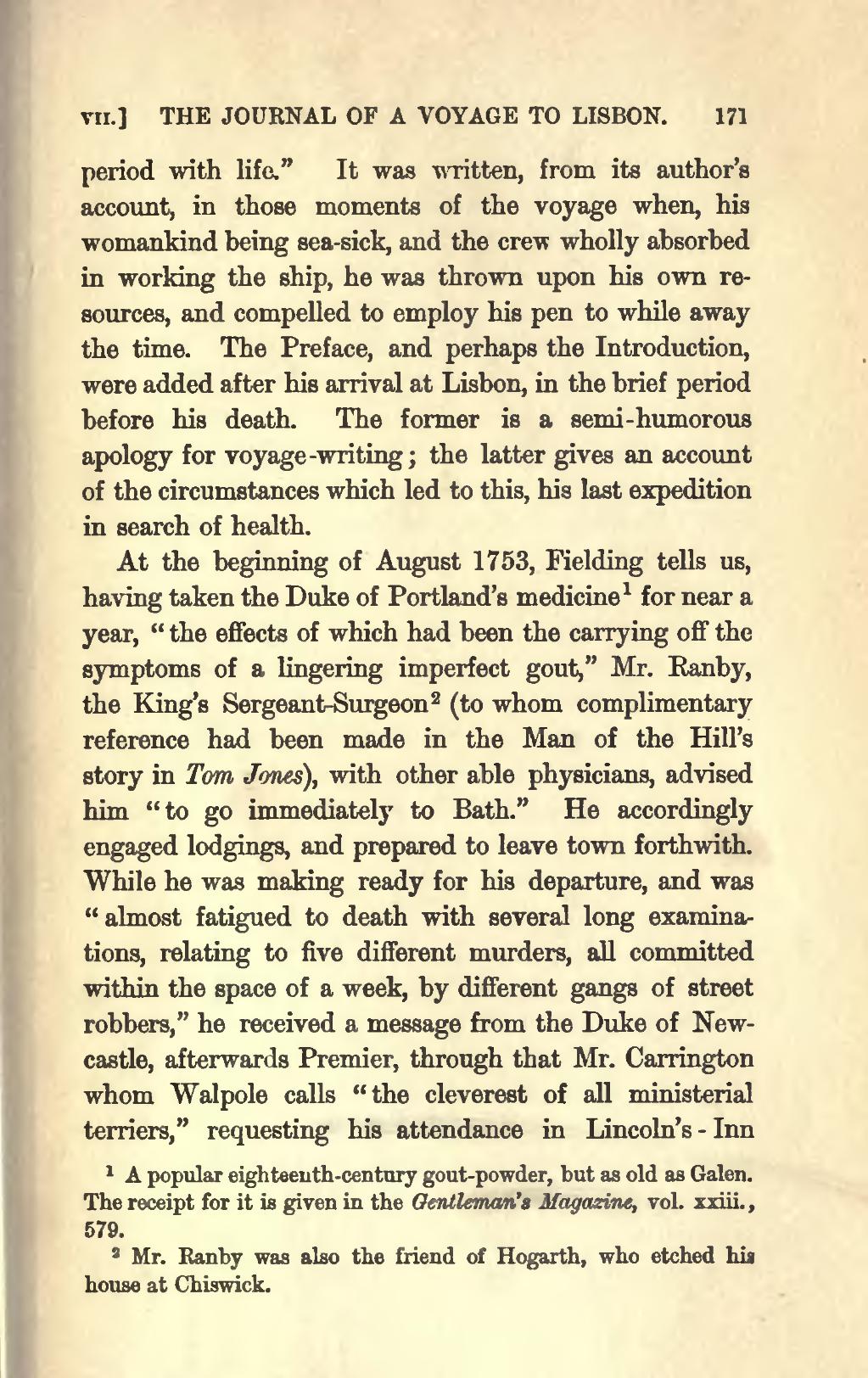period with life.” It was written, from its author’s account, in those moments of the voyage when, his womankind being sea-sick, and the crew wholly absorbed in working the ship, he was thrown upon his own resources, and compelled to employ his pen to while away the time. The Preface, and perhaps the Introduction, were added after his arrival at Lisbon, in the brief period before his death. The former is a semi-humorous apology for voyage-writing; the latter gives an account of the circumstances which led to this, his last expedition in search of health.
At the beginning of August 1753, Fielding tells us, having taken the Duke of Portland’s medicine [Footnote: A popular eighteenth-century gout-powder, but as old as Galen. The receipt for it is given in the Gentleman’s Magazine, vol. xxiii., 579.] for near a year, “the effects of which had been the carrying off the symptoms of a lingering imperfect gout,” Mr. Ranby, the King’s Sergeant-Surgeon [Footnote: Mr. Ranby was also the friend of Hogarth, who etched his house at Chiswick.] (to whom complimentary reference had been made in the Man of the Hill’s story in Tom Jones), with other able physicians, advised him “to go immediately to Bath.” He accordingly engaged lodgings, and prepared to leave town forthwith. While he was making ready for his departure, and was “almost fatigued to death with several long examinations, relating to five different murders, all committed within the space of a week, by different gangs of street robbers,” he received a message from the Duke of Newcastle, afterwards Premier, through that Mr. Carrington whom Walpole calls “the cleverest of all ministerial terriers,” requesting his attendance in Lincoln’s-Inn
